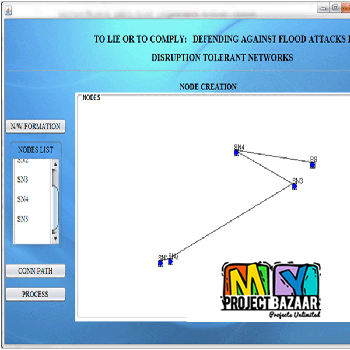
Energy-efficient Adaptive Resource Management for Real-time Vehicular Cloud Services
Product Description
Energy-efficient Adaptive Resource Management for Real-time Vehicular Cloud Services
Abstract— Providing real-time cloud services to Vehicular Clients (VCs) must cope with delay and delay-jitter issues. Fog computing is an emerging paradigm that aims at distributing small-size self-powered data centers (e.g., Fog nodes) between remote Clouds and VCs, in order to deliver data-dissemination real-time services to the connected VCs. Motivated by these considerations, in this paper, we propose and test an energy-efficient adaptive resource scheduler for Networked Fog Centers (NetFCs). They operate at the edge of the vehicular network and are connected to the served VCs through Infrastructure-to-Vehicular (I2V) TCP/IP-based single-hop mobile links. The goal is to exploit the locally measured states of the TCP/IP connections, in order to maximize the overall communication-plus-computing energy efficiency, while meeting the application-induced hard QoS requirements on the minimum transmission rates, maximum delays and delay-jitters. The resulting energy-efficient scheduler jointly performs: (i) admission control of the input traffic to be processed by the NetFCs; (ii) minimum-energy dispatching of the admitted traffic; (iii) adaptive reconfiguration and consolidation of the Virtual Machines (VMs) hosted by the NetFCs; and, (iv) adaptive control of the traffic injected into the TCP/IP mobile connections. The salient features of the proposed scheduler are that: (i) it is adaptive and admits distributed and scalable implementation < final year projects >
Including Packages
Our Specialization
Support Service
Statistical Report

satisfied customers
3,589
Freelance projects
983
sales on Site
11,021
developers
175+Additional Information
| Domains | |
|---|---|
| Programming Language |
















